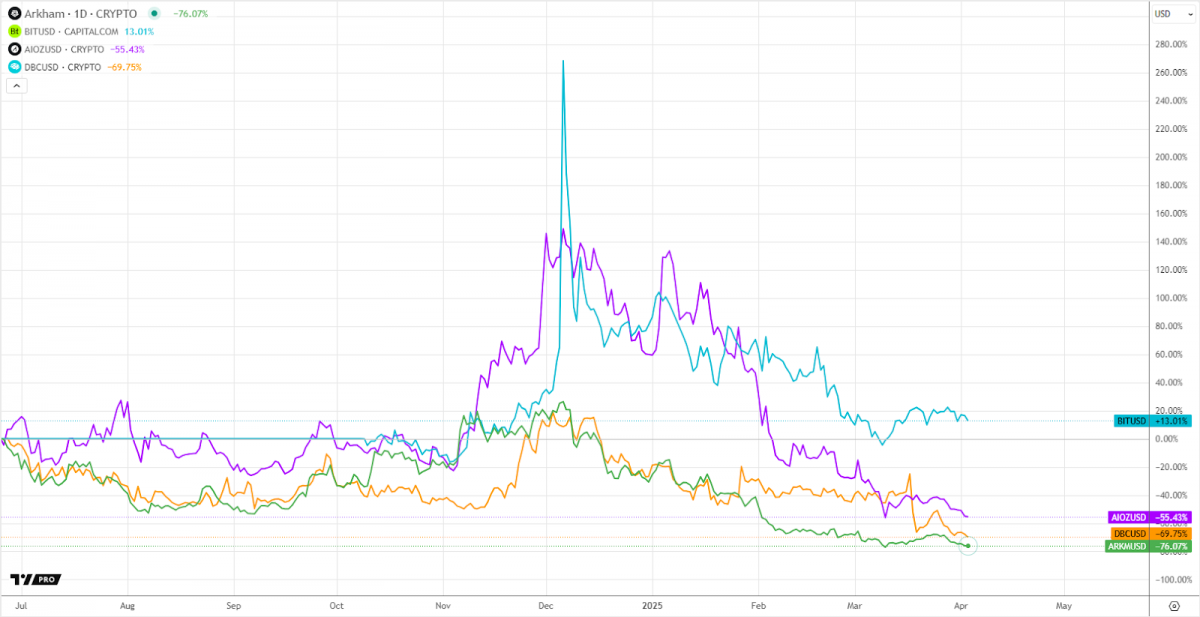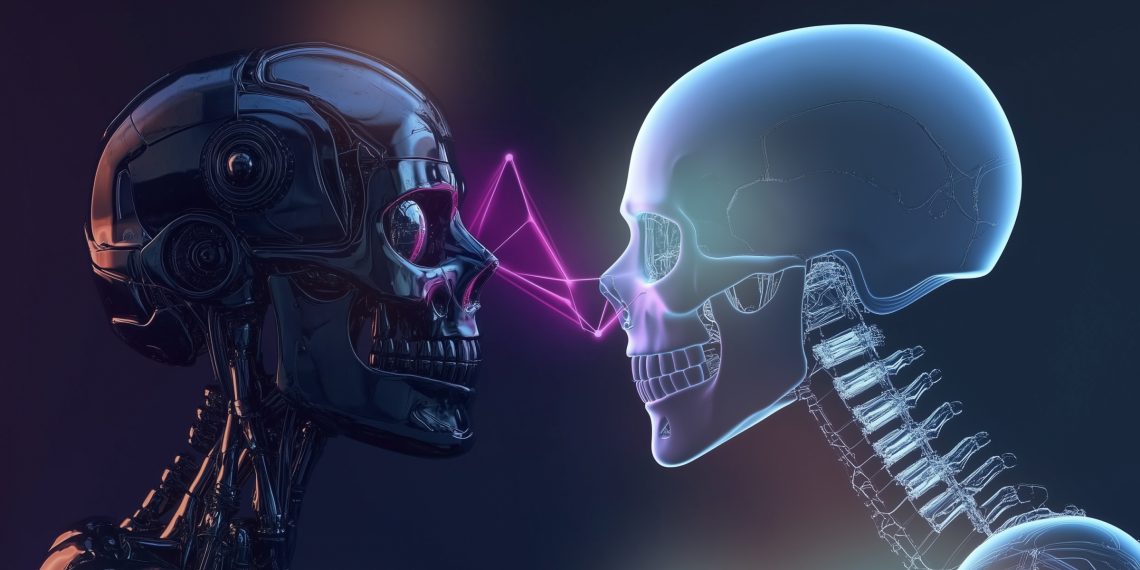Digital immortality is the concept of preserving human consciousness, memory, and personality in a digital format. With advancements in artificial intelligence, blockchain, and neurotechnology, this idea has moved beyond the realm of science fiction.
Digital legacy is a more practical aspect of this idea and is already being implemented today. It includes:
- Preserving digital assets (cryptocurrencies, social media accounts) after death.
- Transferring data to heirs via smart contracts.
- Creating AI-based digital avatars that replicate a person’s personality.
Blockchain plays a crucial role in ensuring data security, decentralization, and immutability. Tools like a crypto heatmap can help track and visualize the market trends of relevant digital assets, ensuring informed decision-making when managing a digital legacy.
Top 5 Cryptocurrencies Related to Digital Immortality and Inheritance
1. Arkham (ARKM) – Smart blockchain and digital clones
Arkham is a platform that uses AI to analyze blockchain data. Originally designed for tracking transactions, it could be adapted to store digital identity traces.
Pros:
- Decentralized storage of digital identity.
- AI-powered analysis and reconstruction of behavioral patterns.
- Integration with other blockchain projects.
Cons:
- Not specifically designed for digital immortality.
- Dependence on AI advancements.
In the future, it could serve as the foundation for creating blockchain-based “digital twins”.
2. BitDAO (BIT) – Decentralized inheritance management
BitDAO is a decentralized autonomous organization (DAO) that can manage digital assets after a user’s death.
Pros:
- Smart contracts automate inheritance distribution.
- Transparency and security.
- Multi-blockchain asset support.
Cons:
- Requires legal recognition (not yet universal).
- Risk of losing access due to misplaced keys.
It could integrate with notary systems for legal digital inheritance in the future.
3. AIOZ Network (AIOZ) – Storing consciousness in a decentralized network
AIOZ is a Web3 platform for data storage and processing. Theoretically, it could store a “digitized” personality (audio, video, texts, behavioral data).
Pros:
- A decentralized cloud for storing digital identities.
- Fast data access.
- Support for metaverse apps.
Cons:
- No fully developed solutions for digital immortality yet.
- Subject to personal data regulations.
If technology progresses, it could become a foundation for “uploading consciousness.”
4. DeepBrain Chain (DBC) – AI and neural networks for digital avatars
DBC is a blockchain platform for AI computations, which can be used to create “animating” algorithms that mimic a person’s personality.
Pros:
- Affordable and powerful AI processing.
- Ability to train AI models on human data.
- Integration with VR/AR technologies.
Cons:
- No fully developed solutions for complete consciousness simulation yet.
- Ethical concerns.
At the moment, it serves as a key platform for developing “digital immortal avatars.”
5. SafeCoin (SAFE) – Secure storage of digital inheritance
SafeCoin is a cryptocurrency designed for privacy and long-term data storage. It is developing solutions for digital wills that allow users to securely transfer assets to heirs using multi-signature and time-locked smart contracts.
Pros:
- Decentralized and secure key and data storage.
- “Dead man’s switch” functionality, which automatically transfers assets if a user becomes inactive.
- Strong anonymity and protection against hacking.
Cons:
- Not widely recognized in legal systems yet.
- Requires technical knowledge to configure.
It could become the standard for the secure transfer of digital assets, especially given the growth of DeFi.

Public perception and future prospects
Technology adoption:
- The crypto community sees potential, but many projects seem futuristic.
- Legal experts question the legitimacy of digital wills.
- Religious and ethical groups oppose the concept of “playing God.”
Prospects:
- The first commercial solutions may emerge between 2030 and 2040.
- Blockchain technology will enhance the security and transparency of the digital legacies.
- AI and neurotechnology will make digital immortality closer to reality.
Digital immortality is no longer a fantasy — it is a logical extension of Web3 and AI. The cryptocurrencies mentioned here offer different solutions, from data storage to digital avatars. The main obstacles are legal recognition and ethical concerns. Just as Bitcoin and Ethereum faced hurdles before gaining acceptance, the path forward will require patience. However, if humanity embraces the idea, blockchain could become the foundation for eternal digital life.

Disclaimer: The views expressed in this article are those of the author and may not reflect the views of the CryptoTotem team. This article is for informational purposes only and is not intended to be used as legal, tax, investment or financial advice. The author or the publication does not hold any responsibility, directly, or indirectly, for any damage or loss caused or alleged to be caused by or connected with the use of or reliance on any content, goods or services mentioned in this article. Readers should do their own research before taking any action on this matter.





